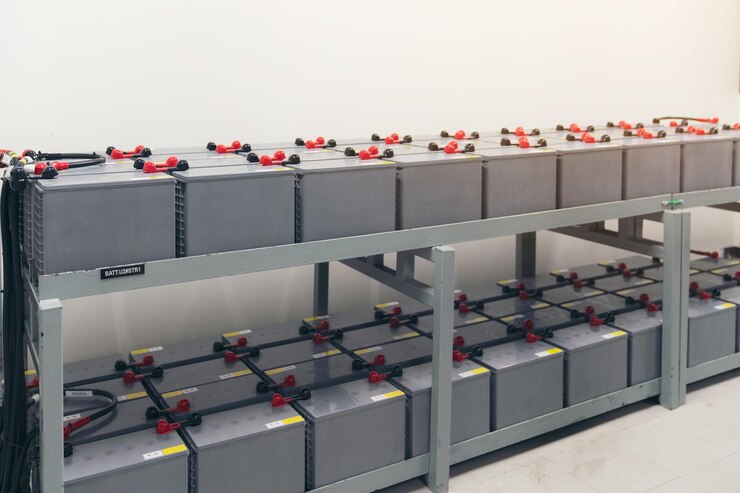The rise of renewable energy sources such as solar and wind has brought with it numerous benefits, including cleaner air, reduced greenhouse gas emissions, and a more sustainable energy future. However, one of the major challenges with these sources is their intermittency — they don’t always produce energy when demand is highest. This is where Battery Energy Storage Systems (BESS) come into play. These systems are quickly becoming the cornerstone of energy management in the 21st century, enabling efficient storage and use of energy when it’s needed most.
What Are Battery Energy Storage Systems?
Battery Energy Storage Systems (BESS) are devices that store electrical energy for later use. These systems work by storing excess energy produced during times of low demand and releasing it during peak times. The most common form of BESS is the lithium-ion battery, which has gained popularity due to its efficiency, scalability, and relatively low environmental impact.
BESS helps bridge the gap between energy supply and demand by storing energy when production is high, such as during the daytime when solar panels are active, and discharging it when energy demand is at its peak, such as in the evening when people return home and begin using more electricity.
Why Are Battery Energy Storage Systems Important?
- Grid Stability: As renewable energy continues to grow, maintaining a stable power grid becomes more complex. Renewable sources like wind and solar are intermittent, meaning their availability can vary. Battery Energy Storage Systems provide a crucial backup during periods of low generation, helping maintain grid stability. By storing excess energy when supply is abundant, BESS ensures that there is power available when renewable energy generation drops.
- Cost Savings: Battery Energy Storage Systems also provide significant cost savings. By storing energy when prices are low (such as during off-peak hours), businesses and homeowners can reduce their electricity costs. Additionally, BESS can help avoid costly infrastructure upgrades by reducing the need for new power plants and transmission lines. With smart grid integration, energy can be dynamically managed to optimize costs and energy use.
- Integration of Renewable Energy: One of the biggest advantages of Battery Energy Storage Systems is their ability to enable more effective integration of renewable energy into the grid. By providing a means to store energy for use when renewable generation is low, BESS allows for a smoother transition to a fully renewable-powered grid. This helps reduce dependence on fossil fuels, promoting a cleaner and more sustainable energy system.
- Energy Independence: As consumers and industries alike strive for greater energy independence, BESS plays an important role in reducing reliance on traditional energy sources. With the ability to store energy locally, Battery Energy Storage Systems allow users to become less dependent on external energy suppliers. This is especially valuable for remote or off-grid communities that want to ensure a constant, reliable energy supply.
Types of Battery Energy Storage Systems
There are several different types of Battery Energy Storage Systems, each with its unique applications and advantages:
- Lithium-Ion Batteries: As the most widely used type of BESS, lithium-ion batteries offer high energy density, long lifespan, and rapid charging. These batteries are commonly used for residential, commercial, and utility-scale energy storage.
- Flow Batteries: Flow batteries, such as vanadium redox flow batteries, store energy in liquid electrolytes, making them ideal for large-scale energy storage. They are more suited to long-duration storage, as they can discharge energy over an extended period.
- Sodium-Sulfur Batteries: Sodium-sulfur batteries are high-temperature batteries that offer excellent efficiency and are used for grid storage applications. They are particularly well-suited for long-term energy storage due to their ability to store large amounts of energy.
The Future of Battery Energy Storage Systems
The future of Battery Energy Storage Systems is incredibly promising. With ongoing advancements in battery technologies, costs continue to fall while efficiency and performance improve. Solid-state batteries, which offer even greater energy density and safety features than current lithium-ion technologies, are on the horizon. These next-generation batteries could revolutionize energy storage by providing higher capacities and longer lifespans, further enhancing the role of BESS in global energy systems.
Moreover, as the world transitions to electric vehicles (EVs), Battery Energy Storage Systems are becoming even more important. EV batteries are expected to be integrated into the power grid in the future, allowing car batteries to store and discharge energy to stabilize the grid. This will create a more flexible and interconnected energy system, where energy can be distributed across various channels to meet demand.
Battery Energy Storage Systems (BESS) are transforming the energy landscape, making renewable energy more reliable, accessible, and cost-effective. From residential homes to large-scale industrial applications, BESS are helping solve the intermittent nature of renewable energy, stabilize the grid, and lower energy costs. As technology advances and more innovative solutions emerge, the role of energy storage will only continue to grow, making it a crucial component of a cleaner, greener, and more sustainable energy future.
As we look ahead, Battery Energy Storage Systems will play a pivotal role in the global push for renewable energy and energy independence, shaping the future of how we generate, store, and consume power.




